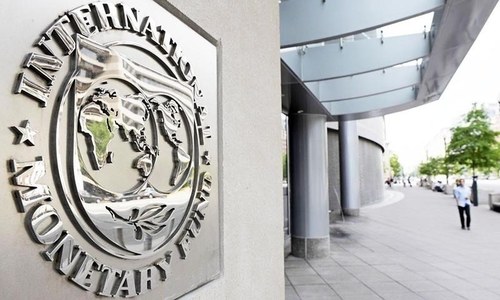ISLAMABAD: An agreement seems to have been reached to freeze the size and expenditures of the federal government in budget 2021, which is set to be announced on June 12. The decision has been made to keep the International Monetary Fund (IMF) programme on track.
Informed sources told Dawn that the government’s economic team held a final round of discussions with the IMF late on Tuesday night to fine tune the broad contours of the upcoming budget. Austerity and belt tightening remain the focus of the upcoming budget for which every section and arm at the federal and provincial level would be required to contribute and sacrifice.
Sources said the government would give a strong message to the world through the 2020-21 budget that it is “fiscally responsible despite severe challenges” and will prudently utilise whatever fiscal space becomes available through international flows.
Budget deficit to be 9pc of GDP
Therefore, the government would announce in the budget that expenditures of the Prime Minister’s Office and President House would remain frozen at the current year level and would be even slightly rationalised. Based on discussions, there are 90 per cent chances that salaries and pensions would not be increased across the board.
For this, the provincial governments have also been brought in the loop to remove wide disparities among salaries, pensions and other expenditures of the governments at all tiers. The IMF had in fact demanded rationalisation of the salary and pension bills. The two sides have also agreed on FBR revenue target of about Rs4.95 trillion for next year under which the defense allocations would be kept under Rs1.3tr. The federal development programme would go beyond Rs650 billion to support growth prospects.
As a solution, the proposal is to slightly increase the secretariat allowance of the federal government employees while the salaries of all others who were already getting special treatments and allowances would be kept unchanged. This would mean that organisations like National Accountability Bureau, Federal Board of Revenue, regulatory bodies, autonomous bodies and corporations, PM Office, Intelligence Bureau and so on will not increase their salary bills.
The salaries, allowances and perks of the provincial employees are currently higher than their federal cousins but once the federal government allows an across the board salary increase, the provincial governments also follow suit. The IMF also had a strong position on increasing non-development budgets of the provincial governments and wanted this to be addressed.
Prime Minister Imran Khan has already asked all the institutions and the provinces to remove disparities in the salaries of their employees and told them this budget should be a clear signal of belt tightening. In case of an economic recovery, the case for salary increase could be taken up with IMF by September 2020.
Besides a tight lid on civil expenditures, subsidies would be targeted and reduced, debt would be smartly structured and cash disbursements for relief and stimulus would be linked to the availability of fiscal space to rein runaway fiscal pressure. Fiscal deficit is being targeted around 9pc of the GDP.
No fresh posts would be created during the year and utmost care would be taken in filling unavoidable posts. Generally, vacant posts for over six and nine months would be considered for abolition.
Similarly, the posts and ministries of devolved subjects would be actually transferred to the provinces including higher education and major hospitals in major cities.
Published in Dawn, June 10th, 2020













































